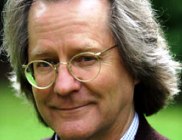Global view: Who has freedom of expression?
Freedom of expression is a universal, fundamental human right. But who actually has access to free expression? Index CEO Kirsty Hughes looks at the evidence.
One approach could be to count the number of democracies in the world, and their populations, and call that a rough estimate of people who can exercise their right to free speech today. But in many democracies, freedom of expression is constrained in many ways — from hate speech and criminal defamation laws to public order and security constraints to obscenity laws. Many of those constraints, such as laws in the UK and India that criminalise offensive speech online, go too far. And many democracies are flawed — through corruption, inadequate press freedom, and poor defence of, or excessive constraints on, rights and freedoms more generally.
The recent Economist Intelligence Unit’s (EIU) 2012 Democracy Index tells us that nearly half the world’s population live in “full” or “flawed” democracies, suggesting billions of us are enjoying freedom of expression to a considerable extent. That leaves the other half of the world’s population living in what the EIU calls “hybrid” or authoritarian regimes. Of this number, 2.6bn live in authoritarian regimes, with China accounting for almost half this figure.
With freedom of expression deteriorating in “hybrid” regimes such as Turkey and Russia, and with over half the European Union’s member states falling into the “flawed” category, this is not a reassuring global picture. EU member states are meant to achieve a decent standard of democracy and respect for rights even before they join the union, but the 14 out of 27 EU states that are categorised as “flawed” not only include many of the central and east European countries that joined the EU in 2004, but also Greece, France and Italy. Overall, democracy worldwide was at a standstill in 2012 compared to the year before, neither better nor worse.
FROM INDEX ON CENSORSHIP MAGAZINE
The multipolar challenge to free expression | News in monochrome: Journalism in India | Censorship: The problem child of Burma’s dictatorship
This article appears in the current issue of Index on Censorship, available now. For subscription options and to download the app for your iPhone/iPad, click here.
INDEX EVENTS
18 July New World (Dis)Order: What do Turkey, Russia and Brazil tell us about freedom and rights?
But the detail is more alarming, from repression in the Middle East and loss of trust in European political leaders to polarisation in the US. One classic barrier to being able to “seek, receive and impart information and ideas through any media,” as Article 19 of the Universal Declaration of Human Rights describes the right to free expression, is illiteracy. About one quarter of India’s population is illiterate, and this includes an astounding one third of all Indian women. This means hundreds of millions of people cannot read or write and are, as a result, unable to gain access to ideas, arguments or debates.
This is not just a problem for countries where poverty and illiteracy go hand in hand. In the UK, up to one fifth of the adult population, around 6 to 8m people, are estimated to be “functionally illiterate”, lacking the basic reading and writing skills necessary to participate effectively in society. One estimate puts the functionally illiterate in the US at 30m. And what about access to the arts or the internet? Because of poverty, people in both rich and poorer societies are being excluded from accessing vital information.
Many people in apparently free societies face discrimination. Cultural boundaries, religious controls, caste, class, age, disability, sexual orientation and gender can all have an impact on people’s ability to express their views in public fora. So when we ask who has access to freedom of expression in today’s world, the answer is not simply “not enough people” or “only half the world”. It’s a fact that, around the world, only a minority fully enjoy and are able to practise their right to free expression. So it’s something we have to change, not least in democracies where governments and elites presume or pronounce, often incorrectly, that their population already enjoys that right.

